Study Zoo Keeping by Distance Learning.
Study Zoo Keeping with ACS - lay the foundation
for lifelong learning, network with the industry and discover the
diverse range of opportunities to work with wildlife.
What's it like working with wildlife?
Working in wildlife education and interpretation can be a very rewarding and inspiring career choice. People working with wildlife always appear to ‘love’ their job even
though parts of it may be physically demanding and sometimes dirty
work. Being in contact with wildlife and having the opportunity to
educate others on the conservation importance of these animals is for
some people a dream job.
What training do I need?
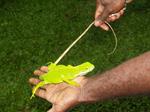 In order to work in the Wildlife Education and Interpretation sector,
you do not necessarily require a degree or qualification, although it
does help. Many people decide they want a career change and start
volunteering with wildlife parks or national parks by guiding tours or
caring for wildlife. This is an excellent way to get a foot in the door
and create a network of contacts within the industry.
In order to work in the Wildlife Education and Interpretation sector,
you do not necessarily require a degree or qualification, although it
does help. Many people decide they want a career change and start
volunteering with wildlife parks or national parks by guiding tours or
caring for wildlife. This is an excellent way to get a foot in the door
and create a network of contacts within the industry.
After gaining skills and knowledge through
volunteering, you may end up obtaining paid work. If you wish to
progress further once having obtained a job in this field, studying for
a Certificate, Diploma, or Degree may be necessary. For example, most
people working in wildlife parks have some kind of qualification in zoo
keeping or wildlife handling and care.
COURSE STRUCTURE AND CONTENT
Course Duration: 600 hours.
Start Date: Start at any time - study at a pace that suits you, and with full tutor support for the duration of your studies.
Modules: The course comprises 3 Core Modules, and 3 Elective Modules. Students are to complete 6 modules in total.
THE CORE MODULES
Students are to complete the following Core Modules:
Animal Health Care VAG100
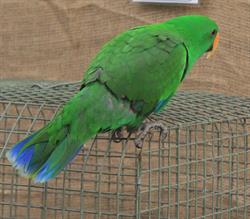 Learn
to identify and describe common signs of ill health and diseases in
animals, and the appropriate types of treatment for these. This 12
lesson module looks at the broader aspects of animal welfare and control
as well as codes of practices and the services provided by
veterinarians. The module includes preventative health care, as well as
considering routine health treatments (such as de-sexing and
castration). It is concluded with a lesson on animal rehabilitation and
recovery.
Learn
to identify and describe common signs of ill health and diseases in
animals, and the appropriate types of treatment for these. This 12
lesson module looks at the broader aspects of animal welfare and control
as well as codes of practices and the services provided by
veterinarians. The module includes preventative health care, as well as
considering routine health treatments (such as de-sexing and
castration). It is concluded with a lesson on animal rehabilitation and
recovery.
Zoo Keeping BEN208
This
9 lesson module is looks at the keeping of animals in captivity, in
zoos, safari parks and the like. Students will learn about how zoos
have developed and how their designs have changed. Context is provided
by considering what the functions of zoos are, the environmental
requirements of captive animals balanced against the requirements to
provide habitat and enclosure designs which also enable effective human
viewing of specimens. The module includes lessons which look at animal
behaviours, interactions with zoo keepers, the health and nutrition
requirements of captive animals as well as the health and safety
principles which need to be followed. The module concludes with a PBL
project on Environmental Enrichment, where students will be able to
consider and apply what they have learned through their studies.
Animal Behaviour BAG203
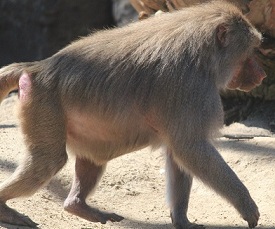 This 8 lesson module teaches students to understand the motivations of
behaviour in animals. It focuses on the behaviour of animals and how
the knowledge of this can be applied to handling, training and managing
animals. Students will study the influences of genetics, perceptions,
and the environment on animals’ behaviour, understanding also the
elements of learned and unlearned behaviour.
This 8 lesson module teaches students to understand the motivations of
behaviour in animals. It focuses on the behaviour of animals and how
the knowledge of this can be applied to handling, training and managing
animals. Students will study the influences of genetics, perceptions,
and the environment on animals’ behaviour, understanding also the
elements of learned and unlearned behaviour.
THE ELECTIVE MODULES
Students are to select 3 modules from the following: -
Marine Studies I
Ornithology
There are certain things that provide an
indication to zookeepers that an animal’s welfare has been compromised.
Some of these indicators are subtle and may only be detected by
observations made over time. Others may be more obvious. A skilled
zookeeper will always be observing the animal populations in their care,
and noticing when such indicators appear. These indicators include:
-
Reduced longevity
-
Reduced ability to grow or breed
-
Body damage (injury)
-
Immunosuppression
-
Physiological attempts to cope
-
Behavioural attempts to cope
-
Increased susceptibility to disease
-
Behavioural pathology (e.g. stereotypies, apathy, self-mutilation).
Observing behavioural indicators of animal
welfare is the preferred method used in zoos as it is non-invasive.
There are four major behavioural indicators that can indicate the
wellbeing of a particular animal.
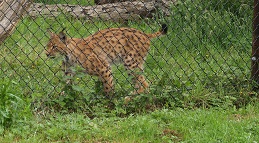
Social interactions, problem solving and observing how the animal learns can provide indication of their state of mind
-
Developing abnormal behaviours can show that the animals’ biological processes cannot function properly in their environment.
-
Changes in the individual’s nature can be seen if the animal is
unable to display behaviours that would come naturally in the wild
-
Observing behaviours in conjunction with ethogram information
and observations of other individuals of the same species can also be
indicators of an animal’s well being.
Detection of a potential problem may not always warrant action
immediately; but suspect animals should be watched more closely and a
veterinary professional should be consulted when they persist.
CAREER OPPORTUNITIES
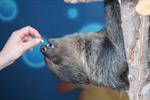
Study alone can never guarantee career success, but a good education is an important starting point.
Success
in a career depends upon many things. A course like this is an excellent
starting point because it provides a foundation for continued learning,
and the means of understanding and dealing with issues you encounter in
the workplace.
WHY STUDY WITH ACS?
ANY QUESTIONS?
If you have any questions, please do get in touch with us - connect with our expert tutors, use our FREE COURSE COUNSELLING SERVICE